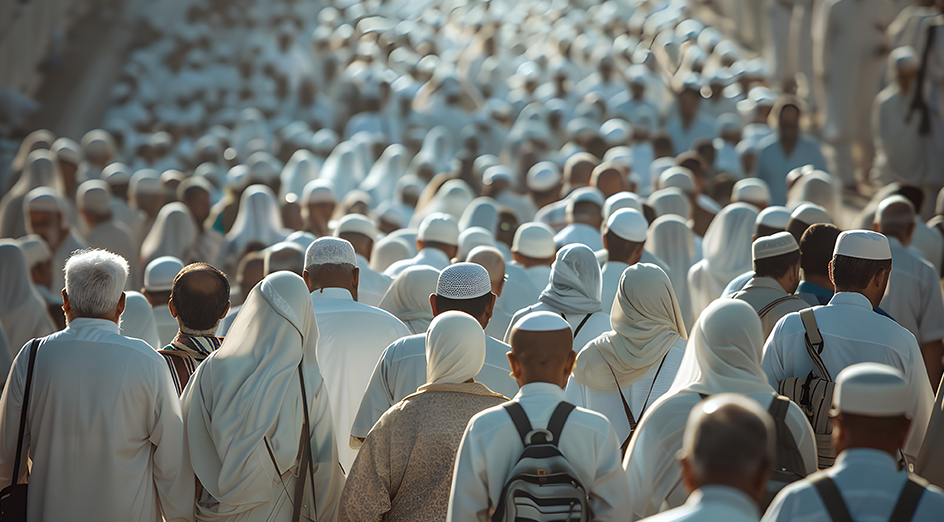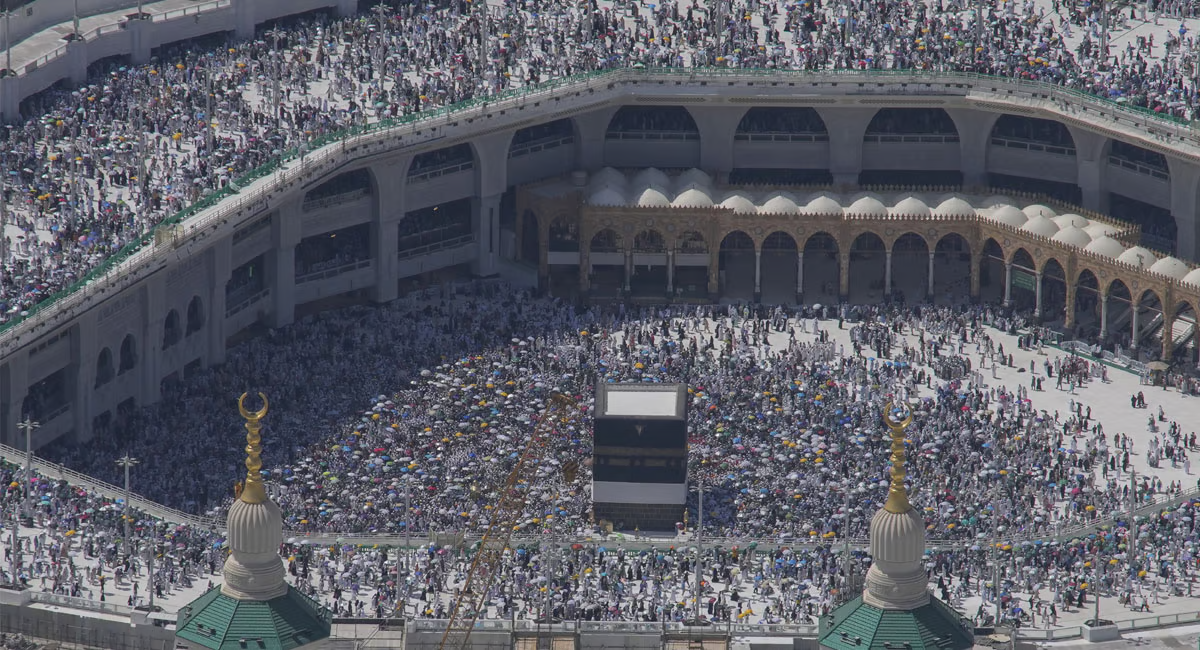The 2024 Hajj Pilgrims Die in 2024 pilgrims witnessed an unprecedented tragedy as extreme heat and humidity claimed the lives of over 1,300 pilgrims. This somber event underscores the growing threat posed by climate change and its dire consequences on human survival.
The Deadly Heat of the 2024 Hajj
The Hajj pilgrimage is a sacred journey that brings together millions of Muslims worldwide. In 2024, it took place in mid-June, coinciding with the peak of the Saudi summer.
Over six days, pilgrims faced relentless temperatures exceeding 51°C and humidity levels as high as 75%. These extreme conditions created lethal “wet-bulb temperatures” that surpassed the limits of human heat tolerance.
Wet-bulb temperatures, a combination of heat and humidity, determine the body’s ability to cool itself through sweating. During the Hajj, wet-bulb temperatures reached 29.5°C, breaching safety thresholds for prolonged periods, especially for older adults and those with pre-existing health conditions.
Read : More than 300 Egyptians Die from Heat During Hajj Pilgrimage in Saudi Arabia
Saudi authorities provided air-conditioned shelters and cooling measures, but access was limited to pilgrims with official permits. Tragically, many victims were undocumented participants who lacked access to these life-saving facilities.
The Science Behind Humid Heat and Its Lethality
Extreme heat becomes even more deadly when combined with high humidity. While dry heat allows the body to regulate temperature through sweat evaporation, humid conditions hinder this process, trapping heat within the body and leading to rapid overheating.
Read : Pakistan Puts 4,300 Beggars on No-Fly List After Threat from Middle Eastern Countries
Research indicates that even young, healthy individuals struggle to survive in wet-bulb temperatures of 34°C at high humidity. For older adults, the danger threshold drops further, with prolonged exposure becoming fatal. During the 2024 Hajj, these limits were breached for 43 hours across six days, making the event perilous for millions.

The rising frequency of humid heatwaves is a direct result of climate change. Warmer oceans release more moisture into the atmosphere, increasing global humidity levels. Saudi Arabia, surrounded by shallow and warming seas, is particularly vulnerable to this phenomenon.
The Growing Threat of Humid Heatwaves Worldwide
The tragedy of the 2024 Hajj is a grim reminder of the escalating threat posed by climate change-induced heatwaves. Since 1979, the frequency of extreme humid heat events has more than doubled, endangering densely populated regions worldwide.
Coastal cities and arid regions like the Arabian Peninsula are especially at risk due to their proximity to warming oceans. Atmospheric rivers, or airborne moisture streams, further amplify the threat by carrying humidity inland to areas such as northern India and Southeast Asia.
This year has been declared the hottest on record, surpassing 2023, with heatwaves claiming lives across continents. In South Asia, heat-related school closures and deaths during elections highlighted the urgent need for climate resilience.

Future projections paint a stark picture. Without immediate action to curb greenhouse gas emissions, lethal humid heatwaves could become annual occurrences in major economies, including the United States, China, and India. The timing of the Hajj will also cycle back to peak summer by 2049, further increasing the risks for pilgrims.
The Urgent Need for Global Action
While technological adaptations like air conditioning offer some relief, they are not universally accessible and come with limitations. Power outages during heatwaves, as depicted in Kim Stanley Robinson’s novel The Ministry For The Future, illustrate the deadly consequences of overreliance on such measures.
The deaths during the 2024 Hajj serve as a sobering reminder that there are limits to human adaptation. To prevent future tragedies, global efforts must focus on reducing greenhouse gas emissions and transitioning away from fossil fuels.
Climate resilience measures, including the development of cooling technologies, improved urban planning, and international cooperation, are critical. The tragedy of the 2024 Hajj should galvanize nations to act decisively against climate change, prioritizing the safety and well-being of vulnerable populations.

